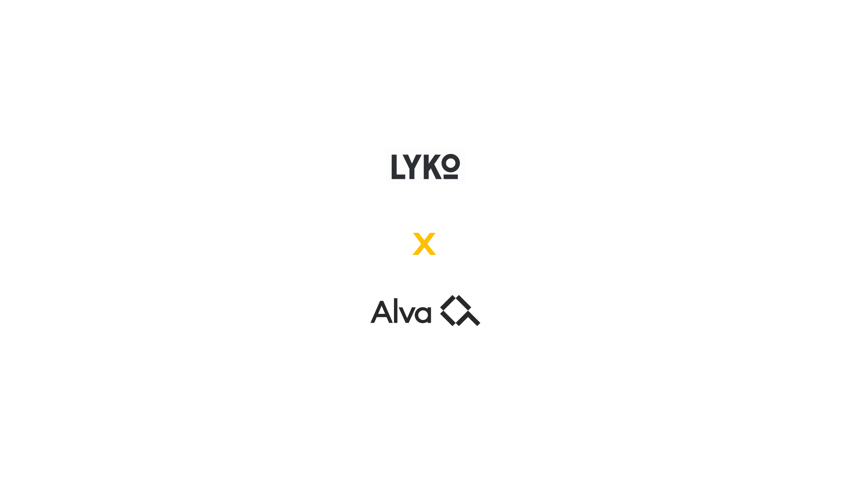Take the UK as an example. According to The Week, UK job vacancies reached an all-time high of 1.3 million between the three-month period of November 2021 and January 2022. Forecasters have warned that they don't expect the market to cool either.
Having an employer brand that resonates in the candidate marketplace has evolved from a nice-to-have to a must-have. A weak or unfocused brand puts companies in jeopardy of not only missing out on attracting new talent, but also watching helplessly as your employees leave for more attractive opportunities.
What is employer branding?
Employer branding is the reputation your company has internally as well as among potential job seekers. Having a strong employer brand is essential for companies who want to attract – and retain – talent.
At Alva, our primary focus is to build our employer brand from the inside out. That means attracting highly skilled candidates who are motivated to help shape our mission. When Alva's Head of People, Linnea Bywall, was featured as a guest on a webinar "How to build and leverage your Employer Brand" hosted by the UK automation hiring platform Tempo, she emphasised that it's a topic companies should take seriously.
"It doesn't matter how good of a product you have or a strategy you have," said Linnea, who also wrote the Alva 101 Guide to Employer Branding. "If you don't have the right people, there's no way you're going to make it."
1. Any employer branding strategy starts with recruiting the right people
Companies can improve their recruiting by ensuring that their job ads accurately reflect their company culture, values, and vision. Linnea's approach to writing job ads for the Alva career site features her trademark lighthearted tone, but also a laser focus on what it means to be successful on the job.
Before Alva even launches the job ad, both Linnea and a recruiter interview the team manager to identify those traits and the candidate persona. She also maps the job ad to the personas of the individual team stakeholders at Alva. For example, an Alva sales ad can differ greatly from an engineering ad as those two teams have different ways of working.
Linnea's fellow panelist Rob Fawkes, Head of Sales and Marketing at Standing on Giants, added that companies should look to avoid cliches in their job ads. Phrases like "fast-paced culture" don't offer substance or communicate the benefits of working there. "How are you delivering on what you're promising them?" Rob said.
2. Ask yourself: are we giving employees what they want?
HR professionals need to ask themselves if ping-pong tables and free beer are benefits that matter to employees. Learning & development budgets and gym membership may be more important. However, it doesn't matter if the company doesn't offer fair-market compensation or a vacation policy. Not every company has the financial resources to offer top-tier salaries.
If so, HR and the talent acquisition team need to emphasise the entire benefits package the employee would receive. Then companies should be selective about the benefits they want to showcase so that they stand out.
"You're not going to have everything," Linnea said. "So focus on what's really unique."
Keep in mind that potential candidates can see through the fluff. The right words on your career site might get them through the front door. But if employees see that the company is not delivering on its brand purpose or its mission statement, that could have a serious impact on recruiting in the future.
3. Employer branding needs employee engagement
Employees who feel a connection to their workplace are some of the strongest drivers of communicating your brand. As Gallup notes, highly engaged employees are enthusiastic, involved, and more productive.
One of the quickest wins for companies is to celebrate their employees on LinkedIn. Ask your marketing team for support and put the spotlight on employees on LinkedIn, highlighting their achievements and milestones.
"Candidates read (that type of content)," Rob said. "They're hearing straight from the people who work there, about what it's like to work there. That's very powerful and quite easy to do."
4. Embrace your storyteller when developing employer branding
This advice is especially relevant for B2B companies who might not interact with the public daily. HR should think like a marketer to position the company to reach its target audience. This could mean starting a blog, giving employees space to talk about their work, or experimenting with other content formats like podcasts or videos.
"We try to be really clear on vision and the higher purpose," said Linnea, when asked how Alva addresses the challenge.
Rob cautioned that HR needs to be patient with their employer brand. It boils down to building trust and building relationships both inside the organisation and out, and it takes time for employer-branding efforts to take root. Even if your company isn't especially active on LinkedIn, you can start with a small batch of existing employees and support their efforts on social media. Consistent posting and positive feedback loops will help encourage the rest of the organisation to join in and start commenting on each others' posts.
One of the audience members brought up the question of whether HR should be concerned if social storytelling could lead to talent being poached. Linnea answered that's all but inevitable; HR managers should understand that you can't hide talent, and employees won't stay forever.
"It's my job to help them be better when they get out than when they get in," Linnea said. "I need to earn their trust and they will want to stay, so I'm happy with sharing all of that and showing that we have the best people in this division – because people will approach them, and that's fine."
5. Employer Branding needs to focus on Diversity & Inclusion
No matter how solid other aspects of your employee brand are, if your company is perceived as lacking diversity, you'll have a difficult time attracting talent. A 2020 survey revealed that 79 percent of job candidates feel it's important to work at places that hire people from diverse backgrounds.
A major step towards a more diverse and inclusive employer brand starts with more inclusive job ads – a prerequisite for today's candidate experience.
Research shows that women often feel they need to match almost 100 percent of a job ad's prerequisites, so if you include too many "need to haves" in the role, women may not feel inclined to apply. The same goes for purging your ads of gender-coded language like "competitive" and "leader-like."
It goes without saying that you need a more objective application process, as the average recruiter spends less than 60 seconds per CV – and too often relies on gut instinct to make their decisions. Having an objective recruitment process also allows companies to look beyond candidates that come from certain schools or have last names common in the local language.
6. Don't put off your Employer Brand strategy
Given how much competition there is for talent, companies shouldn't wait to start improving their Employer Brand strategy. Organisations that consistently deliver on the Employer Value Proposition are the ones in the pole position to attract and retain the best available talent.
"There is a wellbeing windfall to be had for employers who really prioritise their employees' wellbeing and do it properly," Rob said. "Find out what those things are. If you don't, people are going to start leaving. We're seeing that with flexible working and remote working."
Remember that speed is of the essence in a competitive candidate market. Instead of thinking about the perfect plan, HR managers should also just start experimenting.
"Try stuff out, even if it's the smallest thing," Linnea said. "Can you try A/B testing different job ads? ... Just try to make small improvements and get the wheel going."







